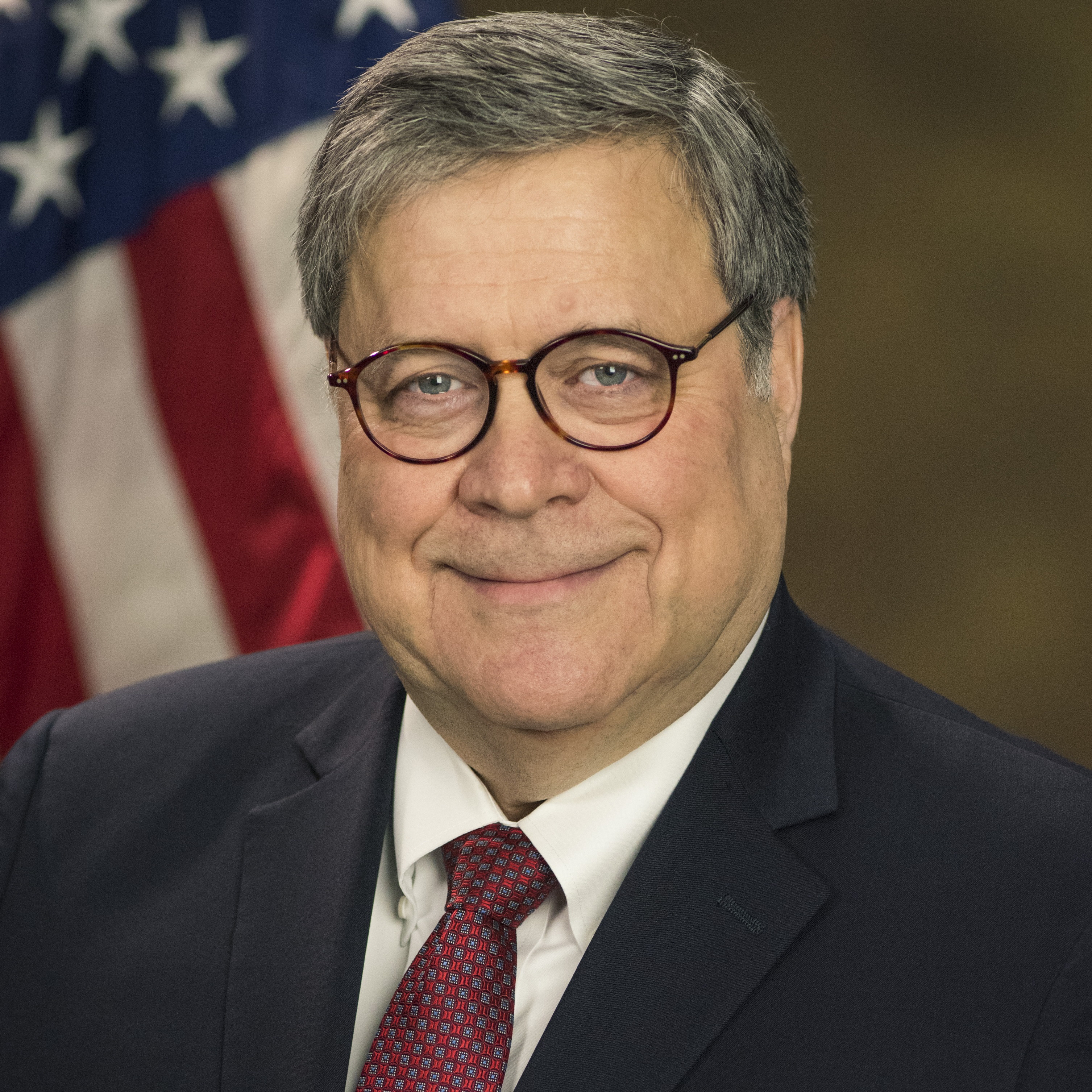Barr: Time Running Out on Warrant-Proof Encryption

The smarter way to stay on top of broadcasting and cable industry. Sign up below
You are now subscribed
Your newsletter sign-up was successful
Attorney General Bob Barr has painted a bleak picture of the internet and communications platforms morphing into “law-free” zones where criminals “go dark” with impunity leading to more crime, abetted by Big Tech.
As to providing government legal access to communications information, Barr said that as a former telecom exec (Verizon), he has been there and it can be done.
That came in a speech Tuesday (July 23) at an international cybersecurity conference, where Barr renewed Justice's call for an end to “warrant-proof encryption.”
Related: DOJ Fires New Encryption Warning Shot at Silicon Valley
Barr said the tech sector has “immensely talented” engineers who can solve the problem of balancing privacy with lawful access and it is time for Big Tech foot-draggers to start moving. “[T]here have been enough dogmatic pronouncements that lawful access simply cannot be done. It can be, and it must be.”
”By enabling dangerous criminals to cloak their communications and activities behind an essentially impenetrable digital shield,“ he said, “the deployment of warrant-proof encryption is already imposing huge costs on society.”
He said those costs will only grow exponentially as the practice accelerates.
The smarter way to stay on top of broadcasting and cable industry. Sign up below
Apple has in the past been a big target of Justice's ire over iPhone encryption.
In one of the flashpoints in the debate, the company resisted the FBI's attempts in 2016 to force it to create a software backdoor so it could access information in the cell phone of one of the San Bernadino shooters.
“We believe that when technology providers deploy encryption in their products, services, and platforms they need to maintain an appropriate mechanism for lawful access,” Barr said.
He suggested the reason is obvious. “As individuals and as a nation we have become dependent on a vast and expanding digital infrastructure. That, in turn, has made us vulnerable to cybercriminals and foreign adversaries that target that infrastructure. The danger cannot be overstated, and enhancing cybersecurity is a national imperative — one shared by the private sector whose networks, data systems and products are at risk, as well as the government agencies charged with securing our critical national infrastructure and guarding our citizens against criminal activity.”
He said that means when the government has a legal warrant and is trying to prevent or investigate crimes, including drug running, sex trafficking and terrorism, it needs to have a way to access data “securely, promptly, and in an intelligible format, whether it is stored on a device or in transmission.”
As to the tech argument that “lawful access,” or what critics call built-in “back doors,” puts an unreasonable burden on companies, he said: "
If not, he said: “Welcome to civil society … We regularly expect — and often mandate if necessary — that our companies take steps to ensure that their products and services do not impose negative externalities on the public interest.”
Besides, he said, he is familiar with the drill and the prospect is not so onerous as some have made it out to be.
“I served for many years as the general counsel of a large telecommunications concern [He was formerly Verizon executive VP and general counsel]. During my tenure, we dealt with these issues and lived through the passage and implementation of CALEA — the Communications Assistance for Law Enforcement Act. CALEA imposes a statutory duty on telecommunications carriers to maintain the capability to provide lawful access to communications over their facilities. Companies bear the cost of compliance but have some flexibility in how they achieve it, and the system has by and large worked.”
Barr said it was “absurd” to think that the government would preserve that lawful access “by mandating that physical telecommunications facilities be accessible to law enforcement for the purpose of obtaining content, while allowing tech providers to block law enforcement from obtaining that very content.”
As to those smart private sector engineers, Barr said Justice would like to engage with them on a solution for lawful access, he signaled time was growing short for a kumbaya moment.
“While we remain open to a cooperative approach, the time to achieve that may be limited. Key countries, including important allies, have been moving toward legislative and regulatory solutions. … The status quo is exceptionally dangerous, unacceptable, and only getting worse. The rest of the world has woken up to this threat. It is time for the United States to stop debating whether to address it, and start talking about how to address it.”
Contributing editor John Eggerton has been an editor and/or writer on media regulation, legislation and policy for over four decades, including covering the FCC, FTC, Congress, the major media trade associations, and the federal courts. In addition to Multichannel News and Broadcasting + Cable, his work has appeared in Radio World, TV Technology, TV Fax, This Week in Consumer Electronics, Variety and the Encyclopedia Britannica.

